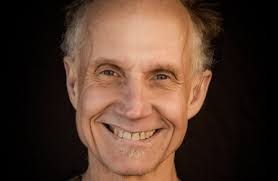
If you’re tired of empty phrases like “Build a Wall” and “Make America Great Again,” you might consider Tony Hoagland’s America for respite. At least you’d be a realist, and at most a decent judge of political poetry.
Tony Hoagland’s view of America is subtle, though. No in-your-face pronouncements. Just creative and philosophical riffs that seem to be written in the key of how-did-we-get-here?
Here are two examples, starting with the more famous older one:
America
Then one of the students with blue hair and a tongue stud
Says that America is for him a maximum-security prison
Whose walls are made of RadioShacks and Burger Kings, and MTV episodes
Where you can’t tell the show from the commercials,
And as I consider how to express how full of shit I think he is,
He says that even when he’s driving to the mall in his Isuzu
Trooper with a gang of his friends, letting rap music pour over them
Like a boiling Jacuzzi full of ballpeen hammers, even then he feels
Buried alive, captured and suffocated in the folds
Of the thick satin quilt of America
And I wonder if this is a legitimate category of pain,
or whether he is just spin doctoring a better grade,
And then I remember that when I stabbed my father in the dream last night,
It was not blood but money
That gushed out of him, bright green hundred-dollar bills
Spilling from his wounds, and—this is the weird part—,
He gasped “Thank god—those Ben Franklins were
Clogging up my heart—
And so I perish happily,
Freed from that which kept me from my liberty”—
Which was when I knew it was a dream, since my dad
Would never speak in rhymed couplets,
And I look at the student with his acne and cell phone and phony ghetto clothes
And I think, “I am asleep in America too,
And I don’t know how to wake myself either,”
And I remember what Marx said near the end of his life:
“I was listening to the cries of the past,
When I should have been listening to the cries of the future.”
But how could he have imagined 100 channels of 24-hour cable
Or what kind of nightmare it might be
When each day you watch rivers of bright merchandise run past you
And you are floating in your pleasure boat upon this river
Even while others are drowning underneath you
And you see their faces twisting in the surface of the waters
And yet it seems to be your own hand
Which turns the volume higher?
I like the idea of America’s walls consisting of Radio Shacks and Burger Kings and MTV episodes. And of fathers being stabbed and bleeding Benjamins instead of blood. A Goldman Sachs America, then. “My plutocracy, t’is of thee/Sweet Land of Money Trees,/of Thee I write,” and all that.
Note, too, the all-important “your own hand” in the penultimate line. Americans as accessories to the crime. Yes, even protesting Americans, ones who miss the inherent hypocrisies of commercialism and comfort.
And now, a more small-town America look:
Summer in a Small Town
Yes, the young mothers are beautiful,
with all the self-acceptance of exhaustion,
still dazed from their great outpouring,
pushing their strollers along the public river walk.
And the day is also beautiful—the replica 19th-century paddle-wheeler
perpetually moored at the city wharf
with its glassed-in bar and grill
for the lunch-and-cocktail-seekers
who come for the Mark Twain Happy Hour
which lasts as long as the Mississippi.
This is the kind of town where the rush hour traffic halts
to let three wild turkeys cross the road,
and when the high school music teacher retires
after thirty years
the movie marquee says, “Thanks Mr. Biddleman!”
and the whole town comes to hear
the tuba solos of old students.
Summer, when the living is easy
and we store up pleasure in our bodies
like fat, like Eskimos,
for the coming season of privation.
All August the Ferris wheel will turn
in the little amusement park,
and screaming teenage girls will jump into the river
with their clothes on,
right next to the No Swimming sign.
Trying to cool the heat inside the small towns
of their bodies,
for which they have no words;
obedient to the voice inside which tells them,
“Now. Steal Pleasure.”
For me, the price of admission is paid in two spots: “Summer, when the living is easy/and we store up pleasure in our bodies/like fat, like Eskimos,/for the coming season privation.” And “Trying to cool the heat inside the small towns/of their bodies,/for which they have no words:”
Even Hoagland seems to know he’s struck gold, featuring his brilliant turns in short lines as he does. Big picture, small picture. It’s all in your perspective, America. Just don’t let the forest blind your from the trees.

